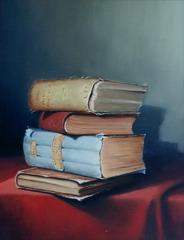CentoPagine 2010
Permanent URI
![]()
CENTO PAGINE
IV - 2010
IO LIBRO
Il libro come oggetto letterario nella cultura occidentale

Copertina stampabile
Abstracts
Rivista completa
Danielle Van Mal-Maeder (Lausanne)
Fantasmi in biblioteca. L’Antichità nel Manoscritto trovato a Saragozza
Gianfranco Agosti (Udine)
La poesia del libro nella Tarda Antichità
Marcello Ferrario (Milano)
Libri, lettori e pericoli nella saga di Harry Potter
Massimo Gioseffi (Milano)
All'ombra dei grandi libri. La silva Andes di Pietro Marso
Stephen Harrison (Oxford)
Themes and Patterns in Horace, Odes 2
Stefano Zivec (Trieste)
Pascoli in una libreria di successo
Elena Merli (L’Aquila)
La lima e il testo da Ovidio a Marziale: poetica e comunicazione
Julien Pingoud (Lausanne)
Ovidio traduttore della sua vita: i Tristia e le Epistulae ex Ponto nella traduzione curata da Chantal Labre
Enrico Magnelli (Firenze)
Immagini del libro nella letteratura di Bisanzio
Luigi Pirovano (Milano)
Cursim scripsi quae potui: Tiberio Claudio Donato rilegge il suo "libro"
Francesco Stella (Siena)
Mito del libro e poesia libraria in età carolingia
Abstracts
Rivista completa
Danielle Van Mal-Maeder (Lausanne)
Fantasmi in biblioteca. L’Antichità nel Manoscritto trovato a Saragozza
Gianfranco Agosti (Udine)
La poesia del libro nella Tarda Antichità
Marcello Ferrario (Milano)
Libri, lettori e pericoli nella saga di Harry Potter
Massimo Gioseffi (Milano)
All'ombra dei grandi libri. La silva Andes di Pietro Marso
Stephen Harrison (Oxford)
Themes and Patterns in Horace, Odes 2
Stefano Zivec (Trieste)
Pascoli in una libreria di successo
Elena Merli (L’Aquila)
La lima e il testo da Ovidio a Marziale: poetica e comunicazione
Julien Pingoud (Lausanne)
Ovidio traduttore della sua vita: i Tristia e le Epistulae ex Ponto nella traduzione curata da Chantal Labre
Enrico Magnelli (Firenze)
Immagini del libro nella letteratura di Bisanzio
Luigi Pirovano (Milano)
Cursim scripsi quae potui: Tiberio Claudio Donato rilegge il suo "libro"
Francesco Stella (Siena)
Mito del libro e poesia libraria in età carolingia
